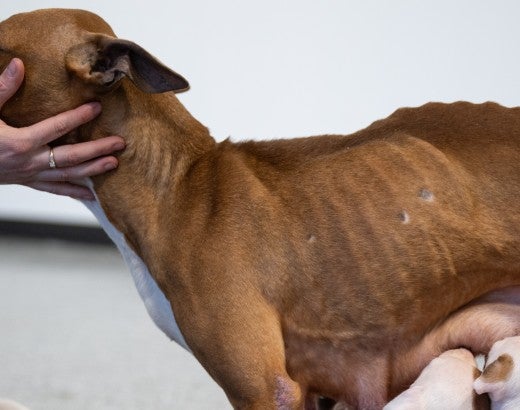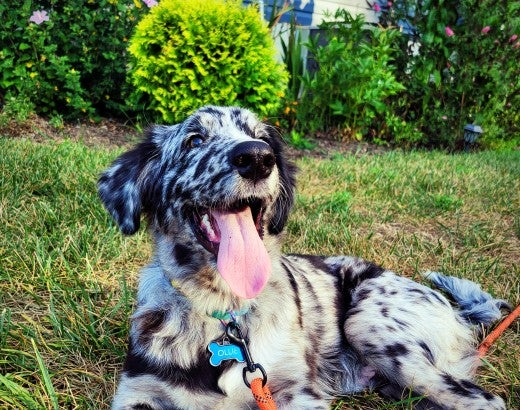Dogfighting creates and perpetuates a life cycle of abuse. Dogs bred, conditioned and forced to fight one another often die of dehydration, infection, blood loss, exhaustion or shock hours or even days after the fight, and mother dogs are used as breeding machines to produce more victims for these horrific spectacles. We worked to ensure that dogfighting is banned across the U.S. and now we’re focused on enforcing these bans. When asked to assist law enforcement in a bust of an alleged dogfighting ring earlier this year, our rescue team seized the opportunity to interrupt this cycle of violence to give so many dogs a chance at loving homes. One of these dogs was Joan Jett, who was nursing six puppies when we found her. Here, Lindsay Hamrick, our director of shelter outreach and engagement, who became Joan Jett’s foster, follows up on Joan Jett’s story.
At the scene, I still remember kneeling down to gently introduce myself and then carefully lifting her up on the table for a veterinary exam. I could feel each of her ribs and see each bone of her spine. The veterinarian noted her emaciation, a cracked tooth and some scarring on her body. We moved her onto a warm transport vehicle with her nursing puppies. Joan Jett was one of over 120 dogs we rescued from an alleged dogfighting operation. (The rescue team named each dog after musicians.) I didn’t realize at the time that I would see her again.
A police officer on scene asked me, “How do you not take them all home?”
“Impulse control,” I replied.
I would laugh at my response a few weeks later when my local animal shelter, a Humane Society of the United States shelter partner, chose Joan Jett and her now-weaned puppies for its adoption program. My partner and I immediately offered to foster her.



